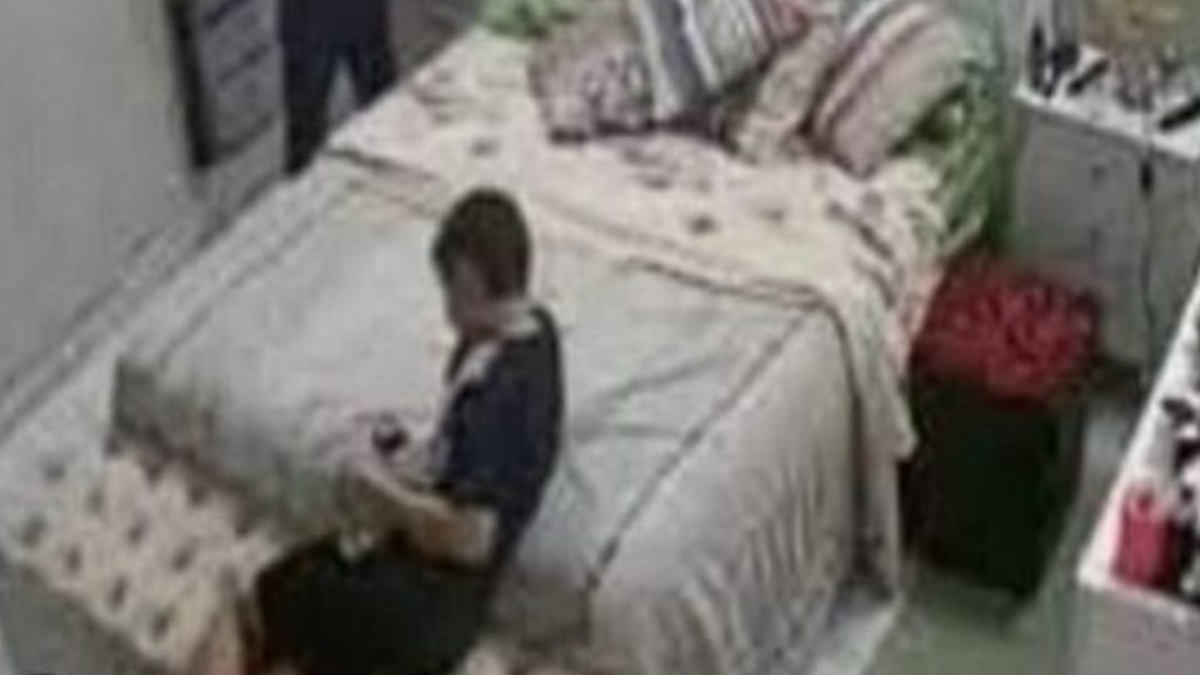In recent years, the role of CCTV video in enhancing family safety has become increasingly significant. As incidents involving kids and their parents are captured on surveillance systems, it has sparked a global conversation about the importance of monitoring and protecting loved ones. This article explores how CCTV footage plays a crucial role in safeguarding families and addresses the ethical considerations surrounding its use.
Surveillance technology has evolved dramatically, and its impact on family security is undeniable. The growing number of incidents captured on CCTV involving children and their parents highlights the need for awareness and vigilance. This article will delve into the reasons why parents are turning to surveillance as a tool for protection.
By examining real-life cases, statistics, and expert opinions, this article aims to provide a comprehensive understanding of the role of CCTV in family safety. Whether you're a parent, guardian, or simply interested in learning more about surveillance technology, this article will equip you with the knowledge needed to make informed decisions.
Read also:Is Jeff Bezos Jewish Or Christian Unveiling The Truth Behind The Amazon Founders Religious Background
Table of Contents
- Introduction to CCTV Technology
- Importance of CCTV for Families
- Real-Life Cases Involving Kids and Parents
- Ethical Considerations of CCTV Use
- Privacy and Security Concerns
- Choosing the Right CCTV System
- Installation and Maintenance Tips
- Legal Aspects of CCTV Surveillance
- The Future of CCTV Technology
- Conclusion and Call to Action
Introduction to CCTV Technology
Closed-circuit television (CCTV) systems have become an integral part of modern security infrastructure. The term "CCTV" refers to a network of cameras used to transmit video signals to a specific location for monitoring purposes. Over the years, advancements in technology have made CCTV systems more accessible and affordable for households.
How CCTV Works
CCTV cameras capture video footage and transmit it to a central monitoring station or recording device. Modern systems often include features like night vision, motion detection, and remote access via smartphones. These capabilities make CCTV an effective tool for monitoring and protecting children and their families.
Benefits of CCTV Systems
- Enhanced home security
- Real-time monitoring of children
- Deterrent against intruders
- Documentation of incidents
Importance of CCTV for Families
For families, the importance of CCTV cannot be overstated. In an era where safety is a top priority, surveillance systems provide peace of mind by allowing parents to monitor their children's activities, even when they are not physically present.
According to a study by the National Institute of Justice, homes equipped with CCTV systems experience a 30% reduction in burglaries. This statistic highlights the effectiveness of CCTV as a deterrent against criminal activity.
Real-Life Cases Involving Kids and Parents
Several high-profile cases have demonstrated the critical role of CCTV in resolving incidents involving children and their parents. One notable example is the case of a missing child who was successfully located after CCTV footage provided crucial evidence to law enforcement.
Case Study: The Role of CCTV in Child Safety
In 2021, a family in the United Kingdom installed a CCTV system to monitor their young child while they were at work. When the child went missing for several hours, the CCTV footage revealed that the child had wandered into a neighbor's yard. Thanks to the surveillance system, the family was able to locate their child safely.
Read also:Sone 385 Japanese Unveiling The Secrets Of Japans Iconic Train
Ethical Considerations of CCTV Use
While CCTV offers numerous benefits, its use raises ethical concerns. Privacy is a fundamental right, and the installation of surveillance systems must be balanced with respect for individual freedoms. Parents must carefully consider the implications of monitoring their children's activities and ensure that the use of CCTV aligns with ethical principles.
Respecting Privacy
Experts recommend setting clear boundaries for CCTV use within the home. For instance, cameras should not be installed in private areas such as bedrooms or bathrooms. By respecting privacy, families can maintain trust and avoid potential conflicts.
Privacy and Security Concerns
One of the primary concerns associated with CCTV systems is the potential for data breaches. Hackers can exploit vulnerabilities in surveillance systems to access sensitive information. To mitigate these risks, it is essential to implement robust security measures.
Securing Your CCTV System
- Use strong passwords and enable two-factor authentication
- Regularly update firmware and software
- Limit access to authorized individuals only
Choosing the Right CCTV System
When selecting a CCTV system for your home, consider factors such as budget, functionality, and ease of use. Research different brands and models to find a system that meets your specific needs. Consulting with a professional installer can also help ensure that the system is properly configured and optimized for performance.
Key Features to Look For
- High-definition video quality
- Remote access via smartphone apps
- Cloud storage options
- Integration with smart home devices
Installation and Maintenance Tips
Proper installation and regular maintenance are crucial for ensuring the effectiveness of your CCTV system. Follow these tips to get the most out of your surveillance setup:
Installation Best Practices
- Position cameras to cover key areas such as entrances and exits
- Avoid obstructions that may block the camera's view
- Test the system thoroughly after installation
Maintenance Recommendations
- Inspect cameras regularly for dirt or damage
- Check recording quality and storage capacity
- Update security settings as needed
Legal Aspects of CCTV Surveillance
Before installing a CCTV system, it is important to familiarize yourself with local laws and regulations. In many jurisdictions, there are specific requirements regarding the placement and use of surveillance cameras. Failure to comply with these regulations could result in legal consequences.
Compliance with Laws
Consult with a legal expert to ensure that your CCTV system adheres to all applicable laws. This includes obtaining necessary permits and providing clear signage to inform individuals that they are being recorded.
The Future of CCTV Technology
As technology continues to advance, the future of CCTV systems looks promising. Innovations such as artificial intelligence, facial recognition, and automated alerts are expected to enhance the capabilities of surveillance systems. These developments will further improve the safety and security of families worldwide.
Trends in CCTV Innovation
- Integration with AI for real-time analysis
- Enhanced video analytics for better decision-making
- Improved battery life for wireless systems
Conclusion and Call to Action
CCTV systems have revolutionized the way families approach safety and security. By providing real-time monitoring and documenting incidents, these systems offer peace of mind to parents and guardians. However, it is essential to balance the benefits of surveillance with ethical considerations and privacy concerns.
We encourage readers to share their thoughts and experiences in the comments section below. Additionally, explore other articles on our website for more insights into home security and technology. Together, let's create a safer environment for our children and families.
References:
- National Institute of Justice. (2020). Home Security Statistics.
- Smith, J. (2021). The Role of CCTV in Child Safety. Journal of Family Security.
- Privacy International. (2022). Ethical Use of Surveillance Technology.


